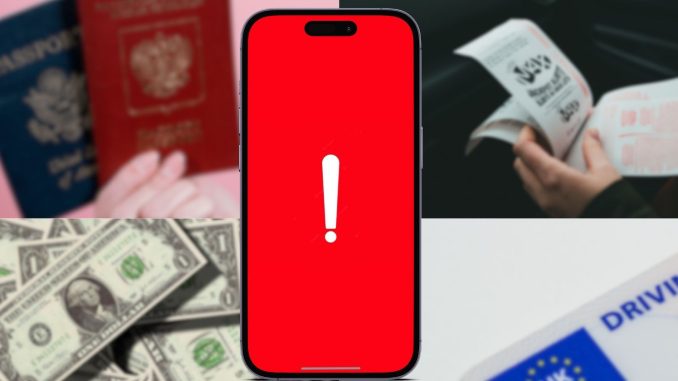
While smartphones are incredibly convenient, storing sensitive or personal information on them can expose you to serious risks if the device is lost, stolen, or hacked. Here are 10 things you should never store in your smartphone:..CONTINUE READING THE FULL ARTICLES HERE
1. Passwords – Saving passwords in notes or contacts is risky. Use a secure password manager instead.
2. Banking PINs and Card Details – Avoid storing debit/credit card numbers, PINs, or CVV codes directly on your phone.
3. Sensitive Photos or Videos – Personal or intimate media can easily be leaked if your phone is hacked or lost.
4. Scanned Identity Documents – IDs like your passport, national ID, or driving license shouldn’t be stored in your gallery or downloads folder.
5. Tax Information or Pay Slips – These contain a lot of private financial data that can be used for identity theft.
6. Confidential Work Documents – If you handle sensitive data for work, keep it on secured, encrypted systems—not your phone.
7. Private Messages and Secrets – Avoid keeping incriminating or deeply personal chats on your phone indefinitely.
8. Security Answers – Questions like “What’s your mother’s maiden name?” should not be stored openly.
9. Medical Records – These are private and should be protected in encrypted health apps, not open files.
10. Unlocked Notes App – Notes often become a dumping place for personal data. Always lock them if you must use them.
Protecting your data starts with being careful about what you store and how you store it.
Kindly Follow Our WhatsApp Channel
Disclaimer: This content including advice provides generic information only. It is in no way a substitute for a qualified medical opinion. Always consult a specialist or your own doctor for more information. NEWSHOUR does not claim responsibility for this information.
